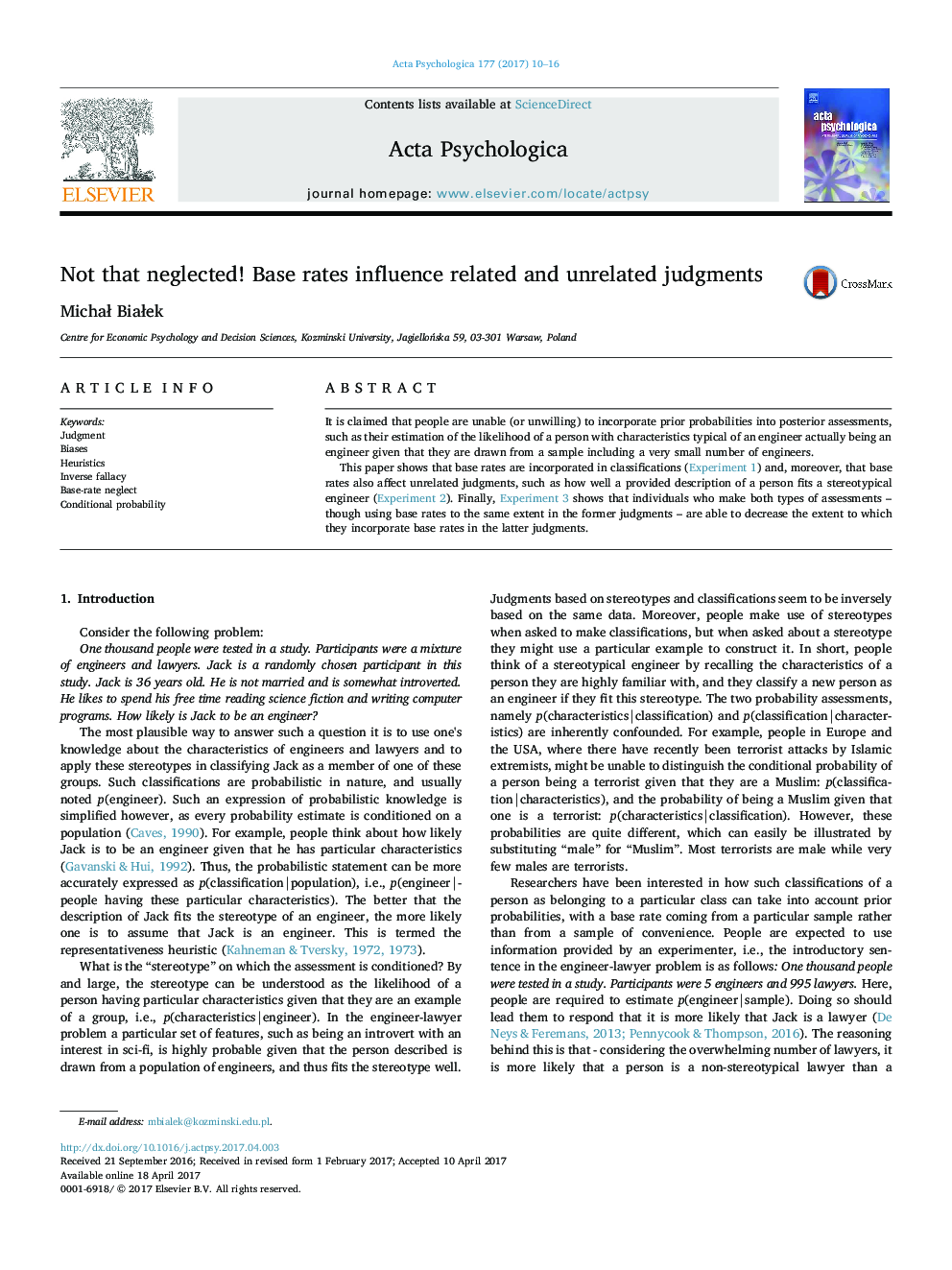| Article ID | Journal | Published Year | Pages | File Type |
|---|---|---|---|---|
| 5040266 | Acta Psychologica | 2017 | 7 Pages |
â¢Base rates are shown to affect classifications based on a stereotype.â¢Base rates are also affecting judgments how well a description match a stereotype.â¢Both estimates are confounded because of the inverse fallacy.â¢People control incorporation of base rates when both types of judgments are made jointly.â¢Cognitive reflection is showed not to moderate the usage of base rates.
It is claimed that people are unable (or unwilling) to incorporate prior probabilities into posterior assessments, such as their estimation of the likelihood of a person with characteristics typical of an engineer actually being an engineer given that they are drawn from a sample including a very small number of engineers.This paper shows that base rates are incorporated in classifications (Experiment 1) and, moreover, that base rates also affect unrelated judgments, such as how well a provided description of a person fits a stereotypical engineer (Experiment 2). Finally, Experiment 3 shows that individuals who make both types of assessments - though using base rates to the same extent in the former judgments - are able to decrease the extent to which they incorporate base rates in the latter judgments.
